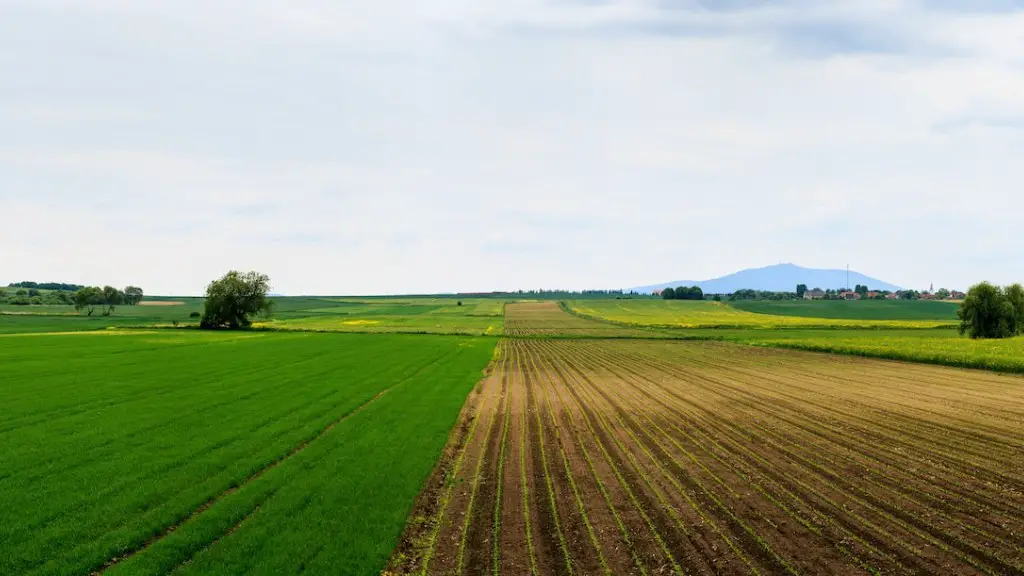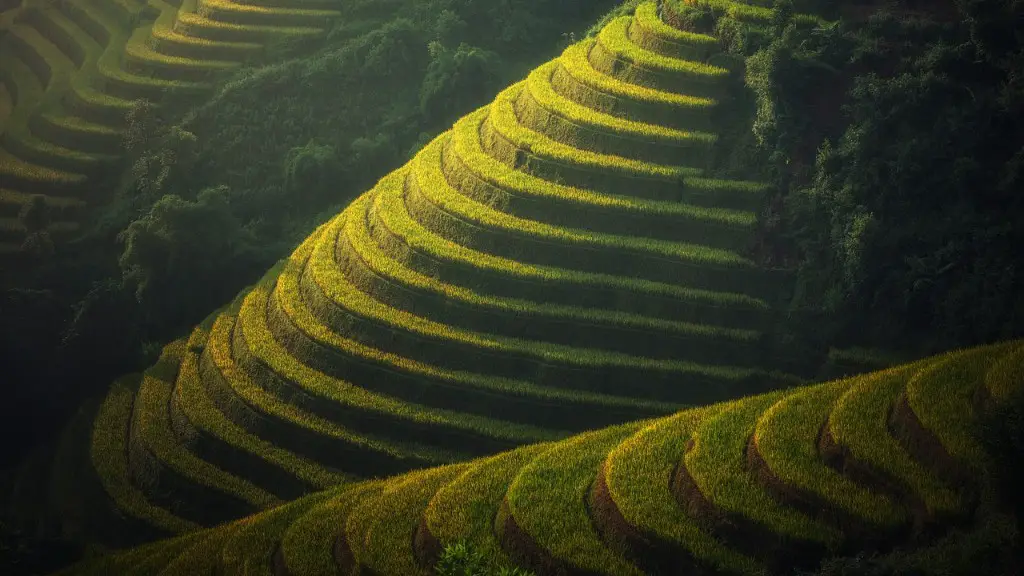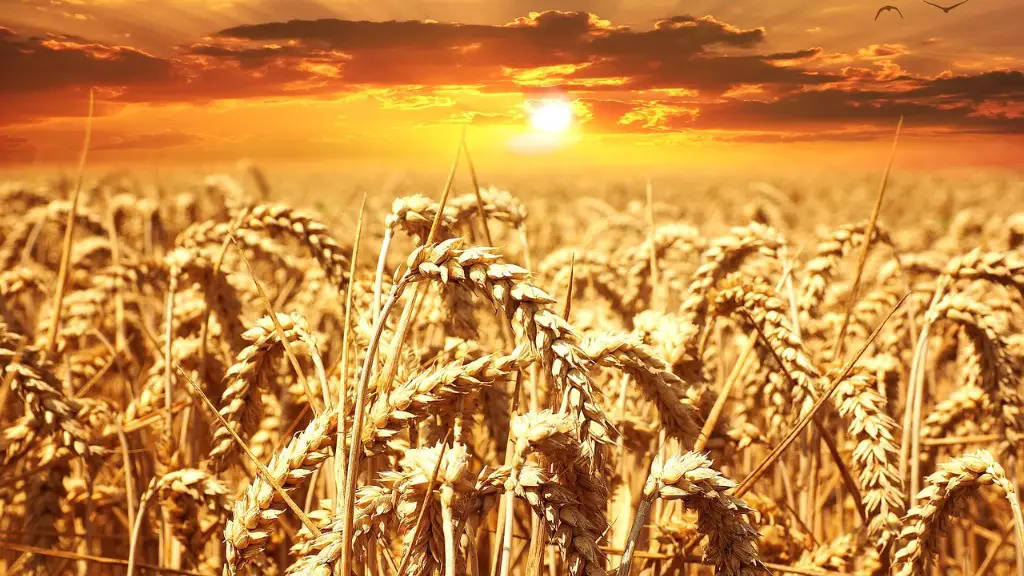The role of government in agriculture is to provide farmers with the resources they need to produce food for the country. The government also regulates the agricultural industry to ensure that farmers are providing safe and healthy food for consumers.
The role of government in agriculture is to provide farmers with subsidies and support programs to help them maintain their operations. The government also promotes agricultural education and research to help farmers stay updated on best practices and improve their yields. In addition, the government regulates the agricultural industry to ensure the safety of food production and protect consumers.
What part of the government controls agriculture?
The Farm Service Agency (FSA) is an important government agency that helps to implement agricultural policy, administer credit and loan programs, and manage conservation, commodity, disaster, and farm marketing programs. The FSA has a network of offices across the country that helps to deliver these services to farmers and other agricultural businesses. The FSA is an important resource for farmers and other agricultural businesses, and can help them to access the programs and services that they need to be successful.
The government protects farmers against fluctuations in prices, revenues, and yields. It subsidizes their conservation efforts, insurance coverage, marketing, export sales, research, and other activities. This allows farmers to continue to produce food and other products for the country even when times are tough.
What is the role of local government in agricultural development
The Local Government Council (LGC) is responsible for the establishment, maintenance and regulation of slaughter houses, markets, gardens and parks in the agricultural area. They also participate in the development of agriculture and natural resources, other than the exploitation of minerals.
Government today may influence what a farmer produces, where a farm is located, how products are transported and processed, how a commodity is traded, the price the farmer might receive, and more. At the national, state, and local level, government influence on agriculture is often the center of debate. Some people argue that government intervention is necessary in order to ensure that farmers are able to produce enough food for the country. Others argue that government intervention often results in higher food prices and that the free market should be allowed to determine the price of food.
How does the government help farmers in the US?
The USDA Farm Service Agency provides direct and guaranteed loans to beginning farmers and ranchers who are unable to obtain financing from commercial credit sources. This allows them to get the funding they need to get their businesses off the ground.
The US government influences what farmers grow and consumers eat through various policies to subsidize the production of certain crops. This has a number of implications for the food system, including the price of food, the types of food available, and the health of the population.
Does the government support agriculture?
Governments support their food, agriculture and fisheries sectors to achieve a wide range of objectives. Some of these objectives include ensuring food security, protecting the environment, providing employment opportunities, and generating income and foreign exchange. Food security is often the primary goal, as it is essential for a population to have access to sufficient quantities of affordable, nutritious food. In many cases, environmental objectives are also important, as the agricultural and fisheries sectors can have a significant impact on ecosystems. For example, agriculture is a major source of water pollution, while overfishing can lead to the depletion of fish stocks.
The Government of India has introduced various initiatives for the benefit of farmers from time to time. Some of these schemes are PMFBY (Pradhan Mantri Fasal Bima Yojana), PKVY (Pradhan Mantri Krishi Sinchai Yojana), PMKSY (Pradhan Mantri Krishi Sinchai Yojana) and PM-Kisan scheme. These schemes have helped the farmers in getting better prices for their produce, getting financial assistance in times of need and improving the irrigation facilities in the country.
Why does government pay farmers not to grow crops
There are a few reasons why the government pays farmers not to grow crops. One reason is to substitute for agricultural price support programs. These programs are designed to ensure that farmers can always sell their crops for enough to support themselves. Another reason is to help farmers during periods of low crop prices. When crop prices are low, farmers may not be able to sell their crops for enough to cover their costs. The government payments can help farmers cover their costs and stay in business.
The government has launched several schemes to provide financial assistance to farmers and boost agricultural productivity. These include the Interest Subsidy for Short Term Credit to Farmers, Pradhan Mantri Fasal Bima Yojana-NCIP, Pradhan Mantri Krishi Sinchai Yojana-Per Drop More Crop, and the Implementation of Market Intervention Scheme/Price Support Scheme. These schemes have been designed to provide financial assistance to farmers, help them boost agricultural productivity, and protect them from financial losses in the event of crop failure.
Why is Biden paying farmers not to grow crops?
President Joe Biden believes that climate change is a real and pressing issue, and one that can be addressed in part by paying farmers not to farm. The logic behind this is that by taking some farmland out of production, there would be less carbon dioxide emitted into the atmosphere. This would help to combat climate change, as well as provide farmers with some much-needed financial assistance.
In recent years, the US government has been providing agricultural subsidies to farmers totaling more than $81 billion. These subsidies are designed to help farmers offset the cost of operating their businesses. While payments to individual farmers are limited to about $125,000 per person, these limits are easy to work around for larger farm operations. Additionally, subsidies can also be found from local, state, and non-USDA programs.
What is it called when the government pays farmers not to grow
The Agricultural Adjustment Act (AAA) was a United States federal law of the New Deal era designed to boost agricultural prices by reducing surpluses. The government bought livestock for slaughter and paid farmers subsidies not to plant on part of their land. The AAA also included a provision for soil conservation. The main goal of the AAA was to raise the value of crops and livestock.
This is good news for California farmers who have been struggling due to the drought conditions. The state is trying to help them by paying them to not plant crops on their land. This will help conserve water and keep rivers flowing.
Why do farmers not pay taxes?
According to the Income Tax Act, 1961, agricultural income is exempted from tax. This means that any proceeds from rent, revenue or transfer of agricultural land, as well as incomes from farming, are considered as agricultural income and are therefore not subject to tax. This is a beneficial provision for farmers, as it allows them to keep more of their income and reinvest it back into their business.
This is amazing news for farmers who have been struggling with debt for years. Joe Biden’s administration has worked hard to make this happen, and it’s a huge relief for those who are affected. Thank you, Joe Biden, for your dedication to helping farmers!
Warp Up
The role of government in agriculture is to provide farmers with the resources they need to produce food for the population. The government also regulates the agricultural industry to ensure that food safety standards are met.
The role of government in agriculture can be seen as both positive and negative. On the one hand, the government can support farmers through subsidies and other programs. On the other hand, the government can also be seen as intrusive, with regulations that can make it difficult for farmers to operate.




